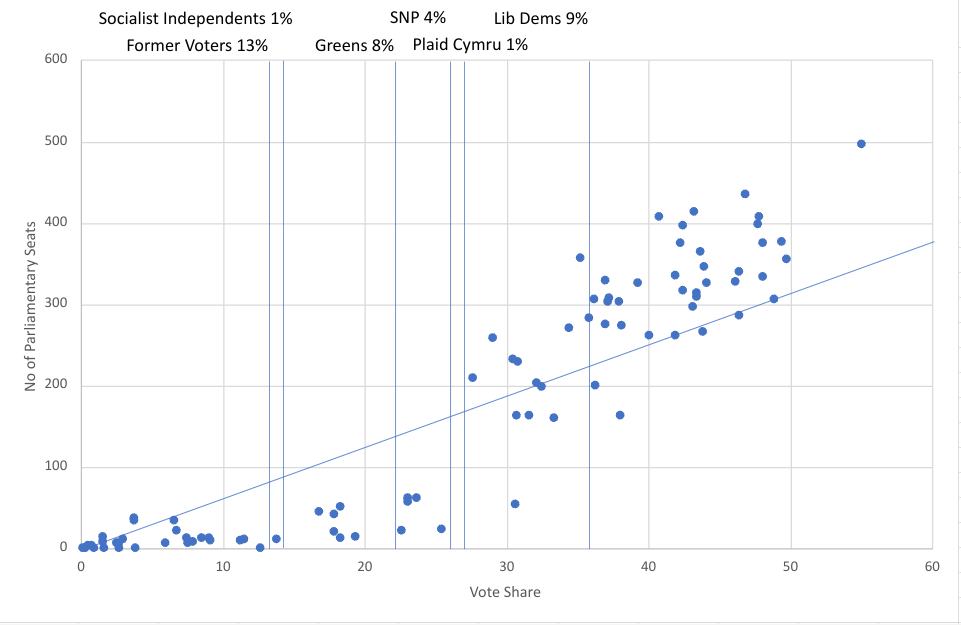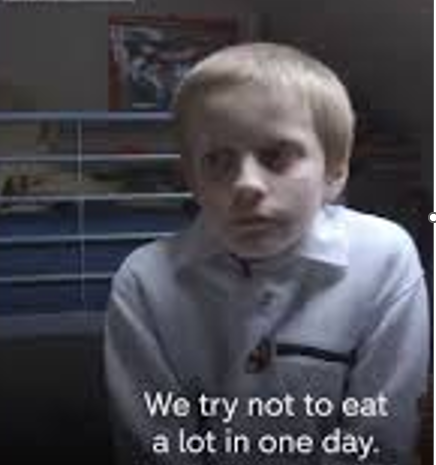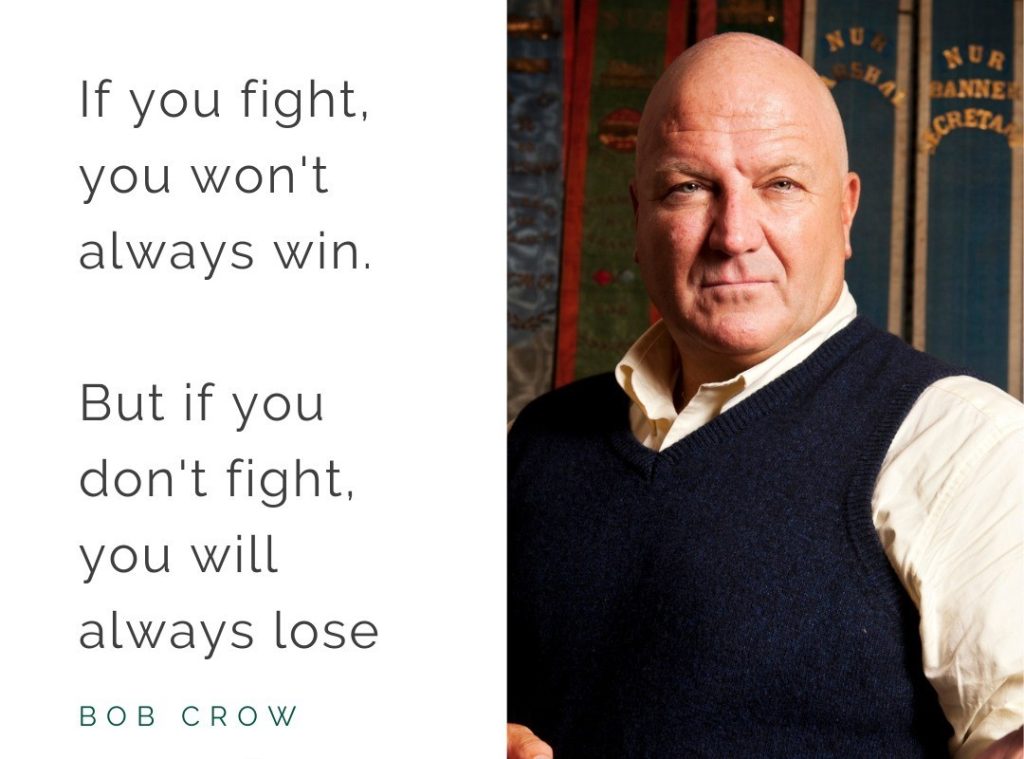A case for Left Primaries?
We need to defeat the Conservatives and build an alternative to the pro-austerity pro-war Labour Party. Rob Kaye presents below a possible way to maximise the effect of the anti-austerity vote, and to give people hope that the Tories can be beaten. It particularly refers to the South West who have successfully done something similar.
This article is intended to present one possible method of representing the people’s support for socialism. The Green Party’s support for NATO and the Lib Dems’ support for Austerity and introducing student loans will cause some misgivings, but primaries amongst anti-austerity anti-war voters would be useful in very many ways.
Some constituencies have already chosen Left or Independent candidates, some using a kind of primary system. This is not intended to affect those choices but for constituencies where no one is yet standing this could be useful. In the upcoming election should it be something we propose in all constituencies where we have members?
Please let us have your views.
Synopsis: The Labour Party has stopped representing the left, so the following is a proposal that could create a left-wing coalition with potentially 32% of the vote share.
Time taken to read: 6 minutes
Britain needs change.
The British people need change.
We need to stop being ripped off. We need to stop paying more for less. We need affordable homes for our children to become independent. We need affordable lives so that they can afford to start their own family, and so that we can live instead of just survive. We need to stop supporting genocide and billionaires and support each other instead.
Each of these things that we need, we also deserve.
Normally when this happens in politics, the British people turn to Labour. Labour then bring in policies that repair the damage, helping families to make ends meet and reducing the privatisation that causes essential services to cost far more than under public ownership.
But something has gone terribly wrong. A few years ago, Sir Keir Starmer, making 10 solemn pledges to support families as Labour has always done, became leader of the Labour party. Since then, the Labour NEC has become subservient to him, attacking his enemies and turning a blind eye to his allies. Then, Starmer systematically broke every pledge he made. Now he supports increased privatisation of the NHS, offers almost no nationalisation and has refused to tax the wealthy. Anyone who disagrees with him in any way is nearly always purged from the party.
In short, under Labour, nothing will change. Everything will still be too expensive. More than 1 in 4 kids will still be in poverty. The economy will continue to dip in and out of recession. The billionaires will get more money that they won’t spend and everyone else will get poorer, colder and hungrier.
The mainstream media has strongly established the narrative; ‘The Tories will lose and Labour will win’. The election is presented as a formality, with Labour’s victory a matter of fate. The near identical pro-austerity main policies of both big parties gets barely a mention, and the rise in popularity of the other parties are a mere footnote.
If we hold the election on their terms, the anti-austerity pro-peace parties will compete against each other and the big parties at the same time. The anti-austerity vote is split up and scattered, and the first past the post system will reduce their vote share into a much smaller seat share.
However, in the Southwest of England, an alternative has appeared, a way for us to fight on our terms. Primaries, smaller elections held between anti-Conservative candidates, are taking place in a few select constituencies across the UK. These have been held because the majority opposed the Conservatives for a hundred years, yet had a Conservative MP forced on them every time by vote splitting. There, the people have booked a local hall, had each of the candidates say their piece, asked them further questions, then voted for their candidates in order of preference. The winner now has the backing of most of the parties’ supporters and is set to defeat the Tory candidate after a century of them being in power.
This plan originally started before Labour abandoned its principles, but the proof of concept is there. Hold a small election between anti-austerity candidates, unite the votes behind one main candidate, then put up a strong fight against the pro-austerity parties. Depending on the level of support, such a coalition would probably force some of the other parties to soften their support of austerity and war, be very likely to form the new opposition party, and even have a slim chance of winning the general election.
After having the media tell you Labour will replace the Tories repeatedly, I understand if the idea of having a slim chance of beating Labour sounds far-fetched, but the facts support my case. Let me show you the full picture.
List of Voting Intentions According to IPSOS MORI Poll Adjusted to Have Equal Sample Sizes
| Labour | Tories | SNP | Lib Dems | Greens | Brexit/ Reform UK | Plaid Cymru | Other | Total Voting | Total Counted | |
| 2019 | 651 | 812 | 79 | 221 | 60 | 59 | 12 | 24 | 1918 | 2214 |
| %age of just voters | 34% | 42% | 4% | 12% | 3% | 3% | 1% | 1% | 100% | |
| 2024 | 745 | 370 | 64 | 152 | 123 | 108 | 22 | 42 | 1627 | 2214 |
| %age of just voters | 46% | 23% | 4% | 9% | 8% | 7% | 1% | 3% | 100% | |
| Difference in No of People | 94 | -442 | -15 | -69 | 63 | 49 | 10 | 18 | -291 | 0 |
| %age shift of all people with vote | +4% | -20% | -1% | -3% | +3% | +2% | 0% | +1% | -13% | 0% |
Above is a table comparing how people said they were going to vote at the 2019 general election and how they say they are going to vote now. The big difference between this data and the polls declaring Starmer’s victory is that it includes people who did vote before but do not support any party now. Most of Starmer’s support has come from ex-Tory voters who will now vote Labour, so it is safe to say that the former voters who aren’t persuaded to vote, 13% of the vote share, are mostly socialist. They just need a candidate to persuade them that they are the best party to vote for to get the values that Labour used to have.
Next up is a chart showing how our First Past The Post voting system suppresses the vote share of smaller parties. It’s a chart displaying how much of the vote each party gets correlated against how much seat share they get in Parliament over the past hundred years of general elections. I’ve excluded national parties with this to make the results clearer. I’ve also added a diagonal line showing where seat share and vote share would match, such as if we used proportional representation.
 As you can see, any party that gets less than 26% of the vote is heavily suppressed, robbed of dozens of seats. If we stay divided, this will happen to us yet again, and we will have another 5 years of being ripped off, cold and hungry.
As you can see, any party that gets less than 26% of the vote is heavily suppressed, robbed of dozens of seats. If we stay divided, this will happen to us yet again, and we will have another 5 years of being ripped off, cold and hungry.
However, once any party crosses that 26% threshold, the voting system starts giving them more seats than they have won. This is why the Conservatives and Starmer are so determined to keep it, in spite of the majority’s wishes to have seats match votes. I’ve added some vertical lines showing how, by combining the vote share of the former voters, Socialist Independents, Greens, Plaid Cymru, the SNP and Lib Dems, a united candidate to oppose austerity and genocide could win 32-36% of the vote depending on which part of the UK they’re in.
At its core, such a system would only need the cooperation of the Green Party and the Liberal Democrats to provide the bulk of the votes and to incentivise some of the former voters to support the winner. These 2 parties have cooperated on several previous elections, notably as Unite to Remain and Unite to Reform, standing down candidates to help each other win in seats. They also cooperated in the South Devon Primaries. With this plan of action, they would not only not need to stand down candidates, but the winner would be rewarded with potentially 3-4 times as many votes. It is therefore likely that they will cooperate with this endeavour.
By itself, representing around a third of the vote share would be a major achievement and be quite achievable with current resources, replacing the Tory versus Starmerite Labour duopoly with a Starmerite Labour versus Anti Austerity Alliance system. However, there is potential for the vote share to increase even further.
A major reason for Labour voters continuing to vote for Labour despite the abandonment of policies, the support of Thatcherism and the slaughter of innocents in Palestine, is that above all they want the Tories gone. We all do, and for a lot of those voters, they see it as a choice between Labour and the Tories. Labour has been focusing on this narrative, saying that any vote not cast for Labour risks letting the Tories in. But as the primaries take hold, and the winners have such a large vote share, this narrative starts to fail. Suddenly, there is an alternative that is popular enough to kick the Tories out, one that will lower bills, support workers’ rights and stand up for the poor and vulnerable.
An Anti-Austerity Alliance would then be in a position where, with their vote share at 32% and Labour at 46%, they only need to persuade 8% of voters intending to vote Labour to support them instead to win a majority. This is achievable, especially in the run up to a general election where swings of voter intention of as high as 15% have been recorded in recent elections.
I have been searching for a way to beat both Tory parties for a long time, and this is by far the best chance we will ever have of achieving our goal. No other plans have come close to having the potential for success as this one does. It is also within budget, requiring volunteers to promote the event, and if enough interest is gained, to have a whip round from local supporters to gather around £100 for renting a village hall to host the event for a few hours. The winner can then get a strongly boosted level of support, the losing parties can divert funds to other seats, and local supporters of all parties will at least have a candidate who opposes austerity and supports peace to campaign for, which is miles better than otherwise having nothing to look forward to. Regardless of how many seats are won, this would lay the foundation for a new socialist party or alliance to fill the void left by Labour, which could then become stronger in time for the next election.
Summary of Options:
Fighting on Starmer’s Terms:
- All anti-austerity parties fight each other and the pro-austerity parties simultaneously.
- The anti-austerity vote is split across 3 or more parties.
- The total percentage of seats won by the anti-austerity parties is 8%.
- Starmer wins, everyone who isn’t a millionaire loses.
Fighting on Our Terms:
- All anti-austerity parties fight each other.
- The anti-austerity vote is united behind the winning candidates.
- The total percentage of seats won by the anti-austerity parties is in the region of 45%.
- The most likely outcome is a hung parliament. If we have a majority, we can pass some legislation that other parties support, particularly electoral reform to end the voter suppression and get the left vote represented better. If Labour have a majority, it will be forced to rely on far-right votes to pass bills, and we will have enough support to block most of these when there are Labour rebels (as happened with the ceasefire vote). We may even have many Labour MPs cross the floor and form a majority that way. Labour could also form a coalition with a far-right party, but then its support would collapse and we would be in an ideal position to replace it quickly. There is also a small chance that we win enough Labour voters to gain a majority of seats.
We cannot expect what we want to just fall into our lap. We cannot just talk about what we would like to happen. We need to take inspiration from the major movements for representation of the people of the past, come up with a plan to restore power to the public and put it into action. This plan gives power back to the people, where it belongs, and lets them have a say as to who they really want in power and end the cruelty of Thatcherism that has blighted us for generations. We should trust them to make the right choice for their community and support them so that they have a better future than the one Starmer has planned for them.
If we do not choose a plan to fight back, we won’t fight back.
Left Unity is active in movements and campaigns across the left, working to create an alternative to the main political parties.
About Left Unity
Read our manifesto
Left Unity is a member of the European Left Party. 
Read the European Left Manifesto
ACTIVIST CALENDAR
Events and protests from around the movement, and local Left Unity meetings.

Saturday 28th March: March Together against the Far Right
Assemble central London 12 noon
More events »
GET UPDATES
Sign up to the Left Unity email newsletter.
CAMPAIGNING MATERIALS
Get the latest Left Unity resources.




